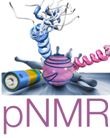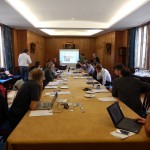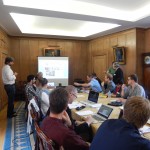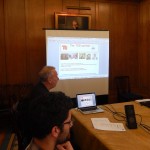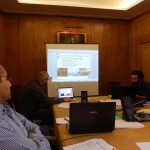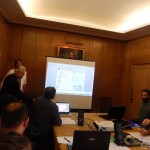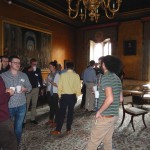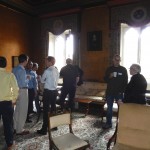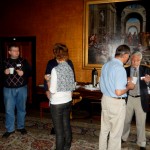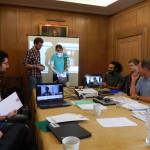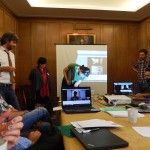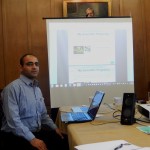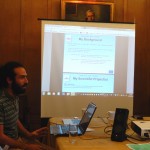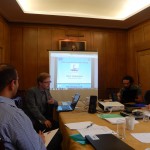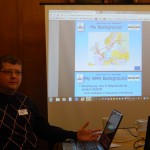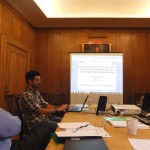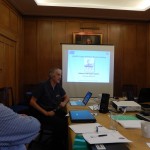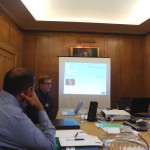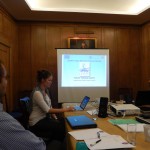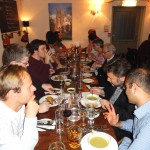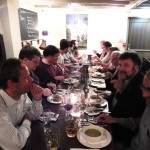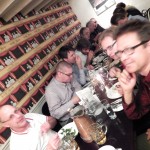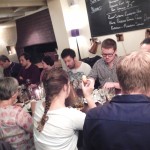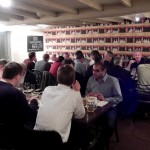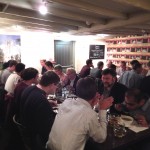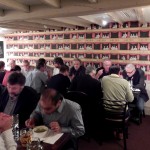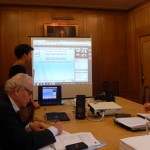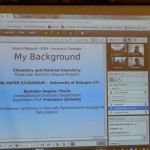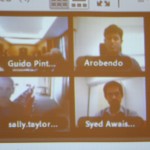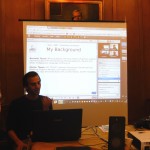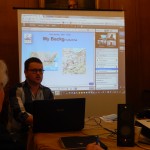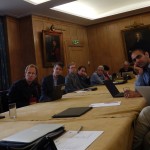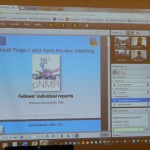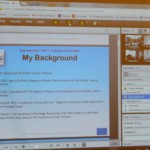The Mid-Term Review Meeting
The 27 members forming the pNMR project got together on Thursday 18th and Friday 19th September at corpus Christi College, Cambridge, for the MID TERM REVIEW MEETING of the project.
Together with a representative of the Research Executive agency (scientific advisor), as well as our own external scientific advisor, Principal Investigators from each pNMR lab and pNMR fellows met to discuss on the project advancement.
It revealed very informative and useful, as well as nice to meet all, sometimes for the first time.
The meeting :
The REA Scientific advisor introduced the meeting.
All scientist-in-charge briefly presented their research team and described their role within the network. The Associated partner also introduced himself.
This was then followed by the Scientific Coordinator’s report on the Network in general, and on the Mid-Term Review Report covering the following aspects :
1. The Scientific context
2. The Fellows
→ Appointment
→ role in the network, employment contracts, geographical distribution
3. The Research Training
→ The training plan and events already held
→ The Cross site training plan
→ Secondment Plan
→ Multi-disciplinarity
→ Complementary skills training
→ Industry Exposure
4. The Scientific Results
→ WP1
→ WP2
→ WP3
5. Networking and transfer of knowledge
→ How the Network functions and how the partners cooperate in practice
6. Dissemination
7. Outreach Activities
8. Network Management
→ Management meetings (activities of the Supervisory board)
→ Consortium Agreement
→ Milestones and deliverables
Project members invited an external scientific advisor, member and representative of the External Advisory Board of the project, to attend the meeting. The advisor presented her findings, observations and conclusions on the project based on 3 assessment criteria : the science, the research training programme, and the MC fellows.
In summary, the project scientific programme can be seen as a cutting edge, multifaceted programme at the frontiers of science, leading to new scientific directions, and providing outstanding research and training opportunities.
The cooperation between the network teams seems excellent, and the cooperation outside the network expands the relevance and impact of the project, as well as the synergy with the industry for the development of relevant applications of the project.
The MC fellows were declared as well integrated within the project, being given networking opportunities and industry exposure through secondments. In addition, visits at partner’s premises notably develops their research experience. Other Students and researchers also contribute and benefit from the network, scientifically and for career development opportunities.
Such a network was hoped to be maybe brought to a more globalised level next time. Coming from an american point of view, such a collaboration was said to be very inspiring and something similar should be set up in the USA.
Every funded fellow then made a short presentation on his/her project and results or achievements so far. The fellow’s presentation covered :
– their background,
– the main objectives of their scientific projects, methodology used and main results obtained,
– their training experiences within the Network (training courses followed),
– secondments (completed or planned),
– dissemination/outreach activities (e.g. conference attendance, publications, visits to schools),
– expectations on the possible impact of the project on their future career.
The fellows also had a private encounter with the REA representative about their experiences within the Network in terms of training, progress and impact on their future careers.
The main focus was on :
i. Administration: Declaration of Conformity, Annexes awareness, working conditions (employment contracts, eligible allowances, visa issues, administrative support), tuition fees.
ii. Supervision and integration: quality of the supervision, integration within the research team/the network/the host institution/ the country.
iii. Training: effectiveness of the Career Development Plan, secondments, PhD courses, attendance to external courses/workshops/conferences, language courses and complementary skills training.
iv. Scientific: Progress of projects, time schedule, achievements (publications/patents, etc.),acknowledgement of funding source.
The REA Project Officer and the Expert Reviewer provided then feedback on the output of the Network so far. Basically, the project has demonstrated very good progress for the scientific research activities, the various network-wide training actions and the implementation of the secondment plan.
The recruited researchers are highly motivated to cooperate within the local groups and to communicate throughout the network. This is strengthened by the personal interactions which were
built throughout the past workshops and conferences. The overall project implementation is following the DoW, and the appropriate management structure has been put in place.
The involvement of the industrial partners and the associated partner is significant.
It appears, that the combination of theoretical and experimental scientists and the cooperation with industrial partners in this unique network provides a successful basis for interaction and for the technical development in the area of pNMR.
